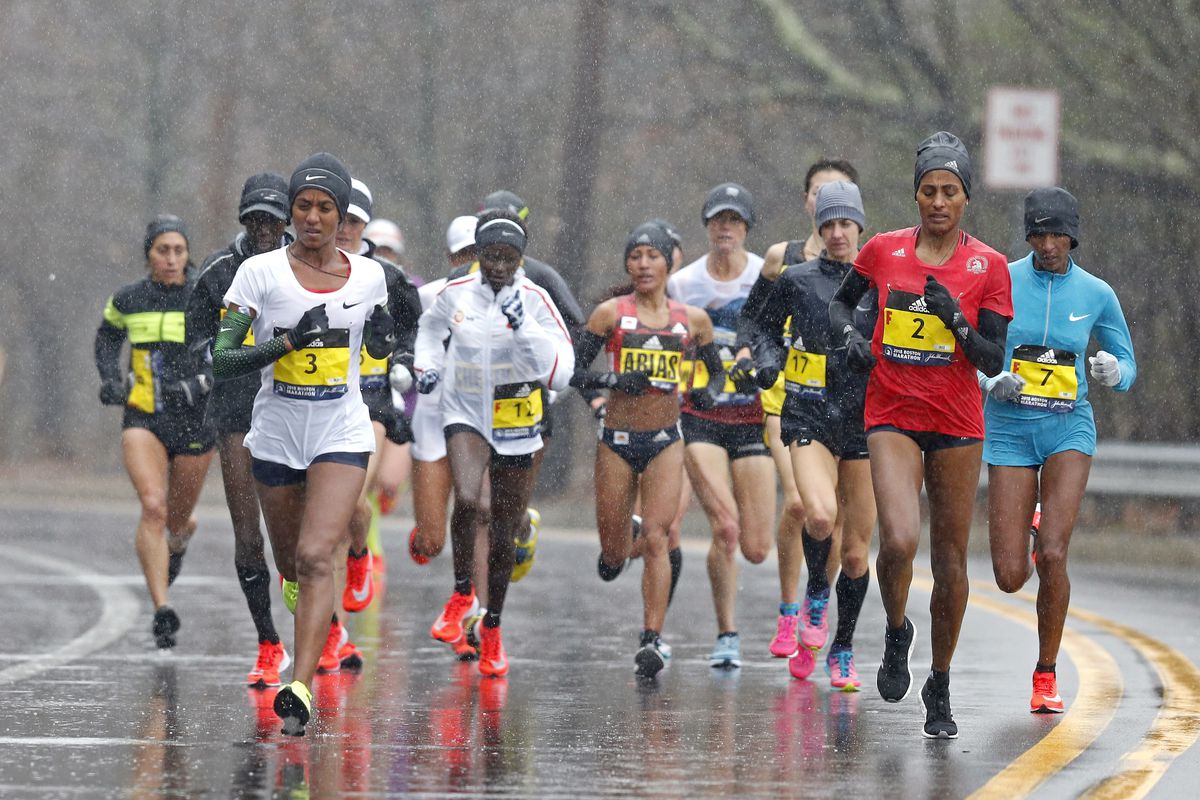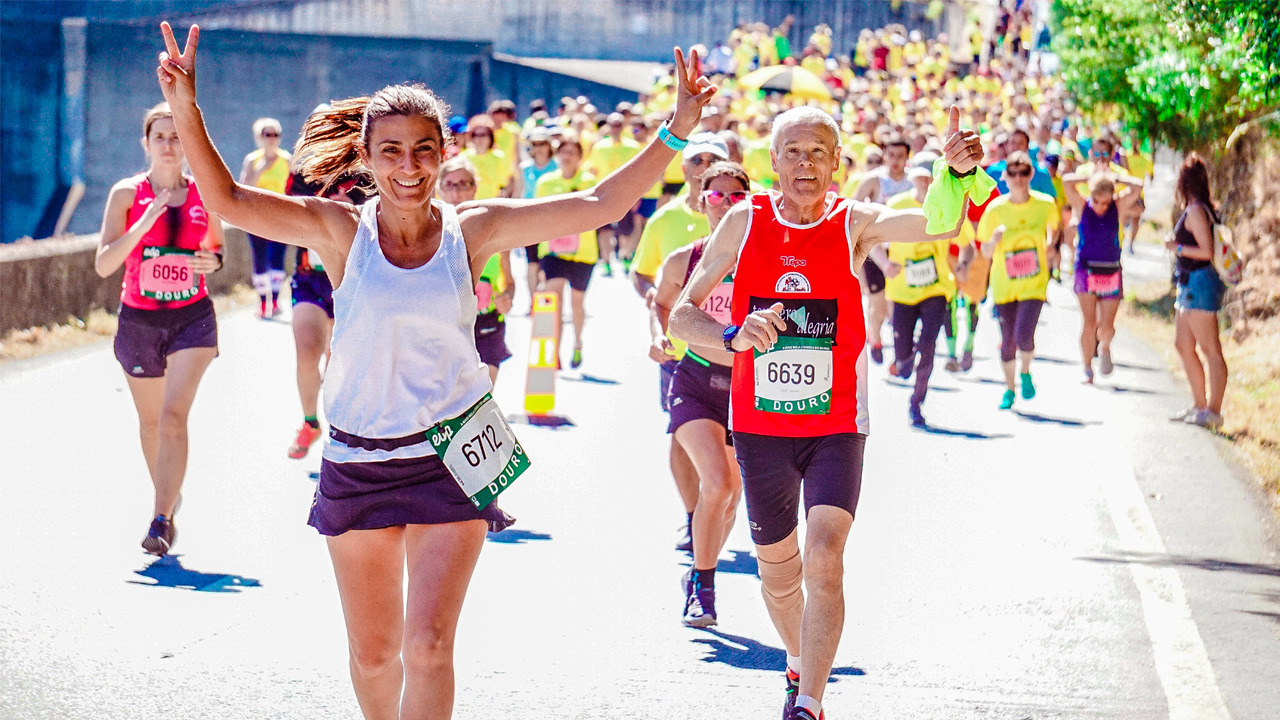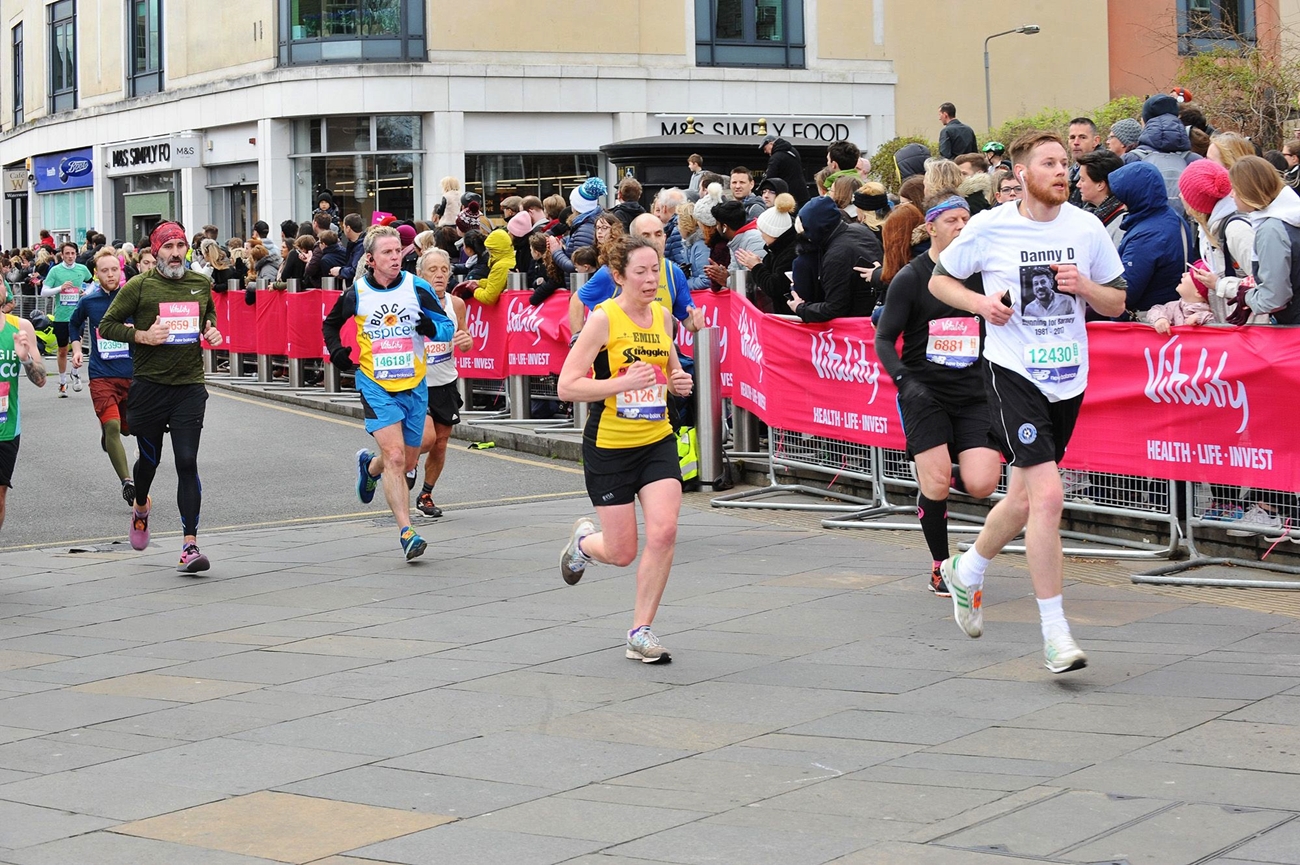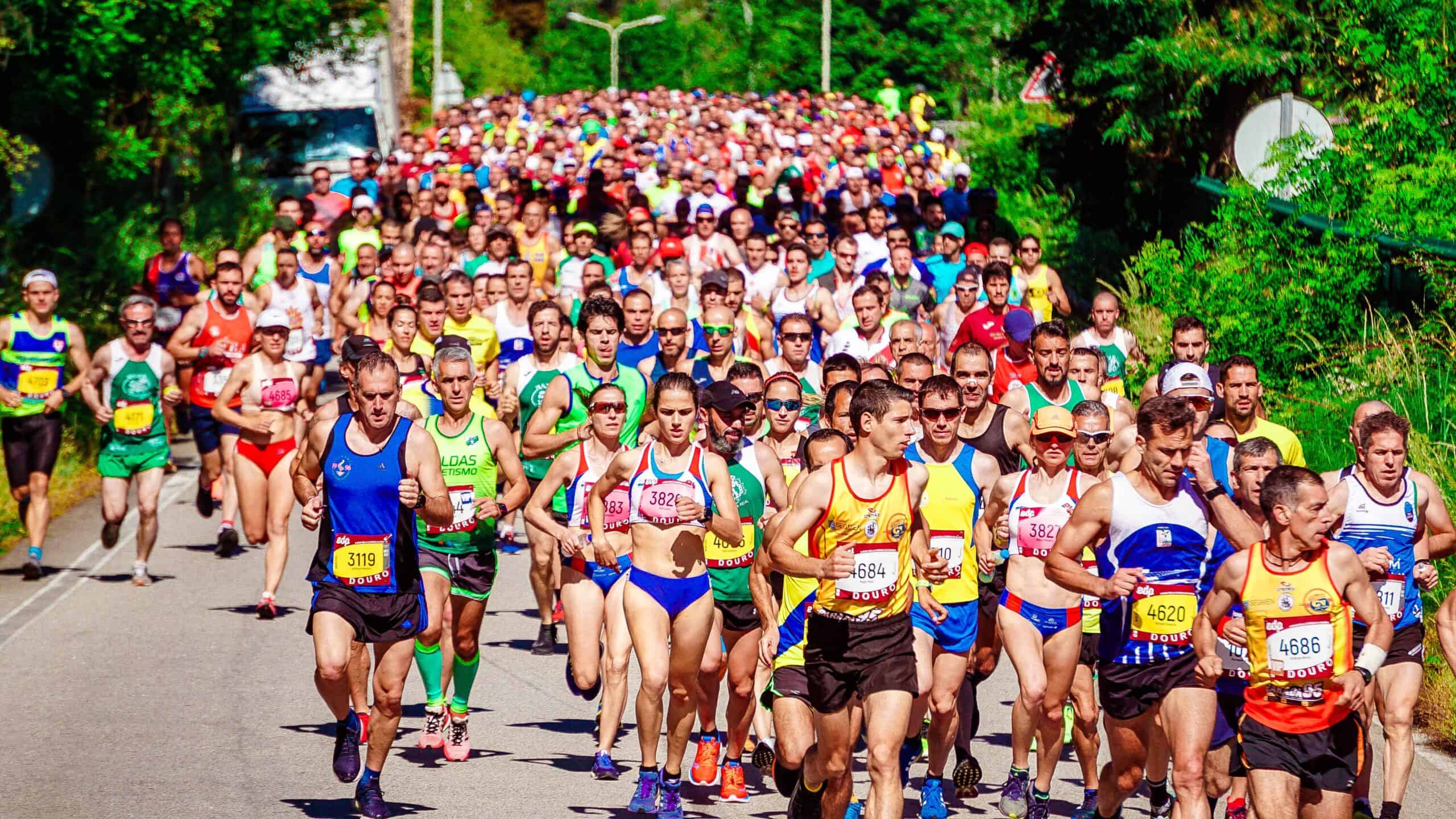Home>Misc>Featured>What To Eat During The Week Of A Marathon
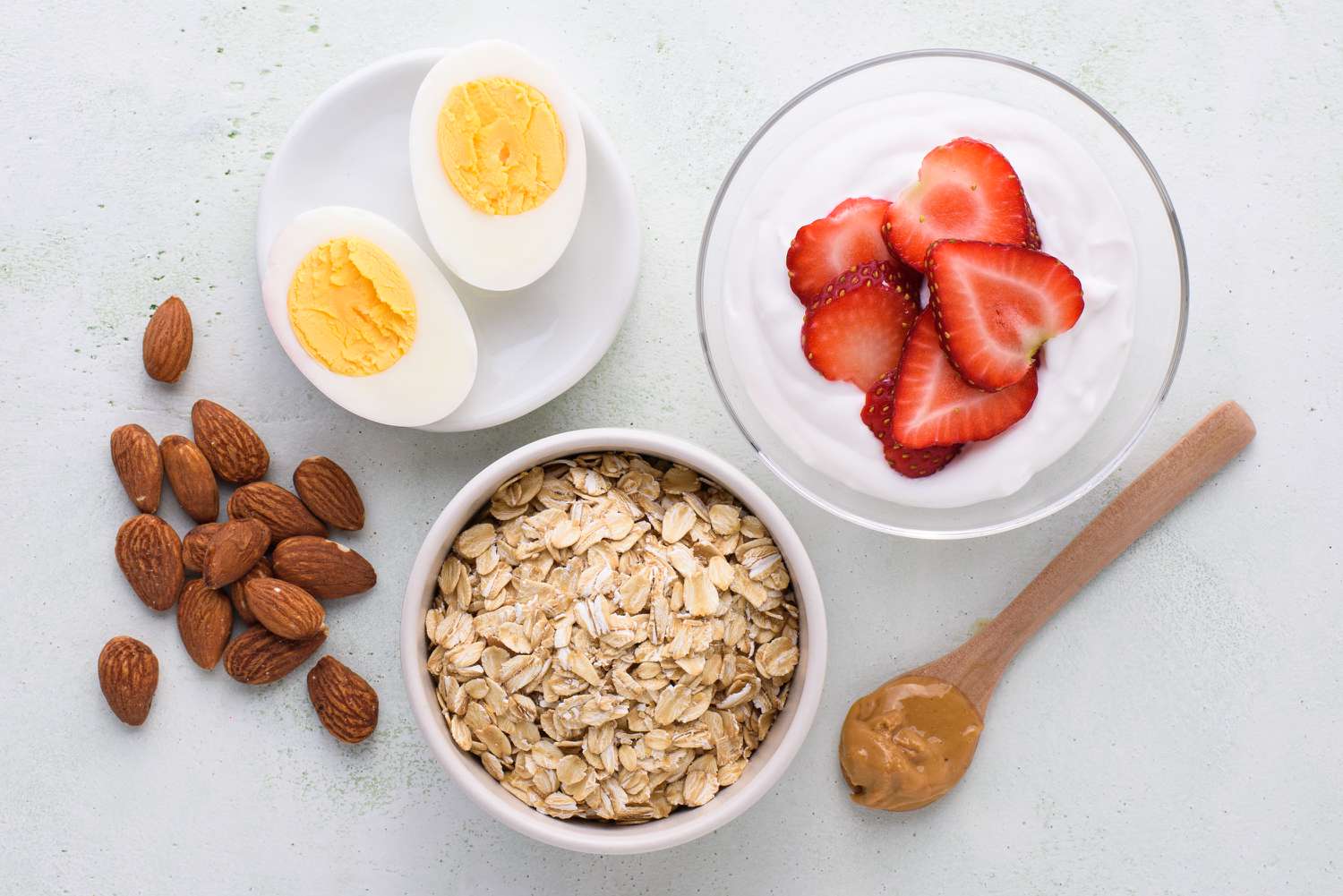

Featured
What To Eat During The Week Of A Marathon
Modified: January 2, 2024
Discover the best nutrition plan for marathon training with our featured guide. Learn what to eat during the week of a marathon and optimize your performance.
Introduction
Welcome to the world of marathon training! Whether you’re a seasoned runner preparing for your next 26.2-mile adventure or a first-timer stepping up to the challenge, one thing is certain – proper nutrition plays a crucial role in your performance and recovery. Fueling your body with the right nutrients before, during, and after a marathon can significantly impact your energy levels, endurance, and overall well-being.
In this article, we will explore a week’s worth of meal plans and nutrition strategies to optimize your performance during a marathon. From pre-race meals to recovery nutrition, we will guide you through the essential elements of a well-rounded marathon diet.
Preparing for a marathon involves more than just pounding the pavement and logging miles. It requires a holistic approach that includes proper training, rest, and nutrition. A well-balanced diet provides the necessary carbohydrates, proteins, fats, vitamins, and minerals to support your training and ensure optimal performance on race day.
When it comes to marathon nutrition, there is no one-size-fits-all approach. Each runner has different dietary needs, preferences, and tolerances. Therefore, it is important to experiment with different foods and strategies during your training to find what works best for you.
Throughout this article, we will provide you with practical tips, meal ideas, and dietary guidelines based on scientific research and experienced marathon runners. So lace up your shoes, grab a water bottle, and let’s dive into the world of marathon nutrition!
Pre-Marathon Nutrition
Proper nutrition leading up to a marathon is crucial for ensuring your body is fueled and ready for the intense physical demands of the race. The week before your marathon is a time to focus on optimizing your nutrition to support your training and allow for optimal performance. Here are some key considerations for pre-marathon nutrition:
- Carbohydrate Loading: In the days leading up to the marathon, it’s important to increase your carbohydrate intake. Carbohydrates are the main fuel source for endurance activities, and adequate glycogen stores will give you the energy you need to sustain your pace throughout the race. Include carbohydrate-rich foods such as whole grains, fruits, vegetables, and legumes in your meals. Aim for a daily intake of 6-10 grams of carbohydrates per kilogram of body weight.
- Hydration: Hydration is key for optimal performance. Start hydrating a few days before the race by drinking plenty of water throughout the day. During long training runs, practice your hydration strategy using sports drinks or electrolyte solutions to replenish fluids and electrolytes lost through sweat. On the day of the marathon, continue to hydrate adequately but avoid excessive fluid intake.
- Protein Intake: While carbohydrates are the primary fuel source during endurance activities, protein plays a crucial role in muscle repair and recovery. Include lean sources of protein such as chicken, fish, tofu, or beans in your meals to support muscle maintenance and repair. Aim for a daily intake of 1.2-1.7 grams of protein per kilogram of body weight.
- Vitamins and Minerals: A balanced diet rich in fruits and vegetables will provide essential vitamins and minerals that support overall health and recovery. Pay attention to vitamin C, which aids in collagen synthesis and supports joint health. Incorporate foods like citrus fruits, spinach, and bell peppers into your meals.
In addition to these general guidelines, it’s important to listen to your body and make adjustments based on your individual needs. Some runners may need more carbohydrates, while others may require additional protein or fat. Experimentation during training runs will help you determine what works best for your body.
Monday: Fueling for the Long Run
Monday is often the day when many runners schedule their long training run, which simulates the distance of the marathon. Fueling properly before and during your long run is essential to maintain energy levels and optimize performance. Here are some key considerations for fueling on Monday:
- Pre-Run Meal: Aim to eat a well-balanced meal 2-3 hours before your long run. This meal should include a good source of carbohydrates, such as oatmeal, whole grain toast, or a banana, to provide sustained energy. Pair it with a source of protein, like Greek yogurt or eggs, to support muscle repair.
- During the Run: For runs lasting longer than 60-90 minutes, it’s important to consume carbohydrates during the run to maintain glycogen stores and prevent fatigue. Carry energy gels, chews, or sports drinks to provide easily digestible carbohydrates and electrolytes. Aim for 30-60 grams of carbohydrates per hour, adjusting based on your needs and tolerance.
- Post-Run Recovery: After your long run, prioritize replenishing glycogen stores and supporting muscle recovery. Aim to consume a recovery meal or snack within 30-60 minutes of finishing your run. This meal should include a mix of carbohydrates and protein, such as a turkey sandwich on whole wheat bread or a smoothie with fruits and Greek yogurt.
It’s important to note that fueling strategies can vary among individuals. Some runners may prefer solid foods during their run, while others find gels or sports drinks more convenient. Experimentation during training will help you determine what works best for your body and digestive system.
Remember to stay hydrated before, during, and after your run. Sip water or a sports drink regularly throughout the run to maintain proper fluid balance and electrolyte levels.
By fueling properly on Monday’s long run, you will be able to maintain energy levels, prevent hitting the wall, and improve your overall endurance.
Tuesday: Recovery and Replenishment
Tuesday is a day dedicated to recovery and replenishing your body after the intense long run on Monday. Proper nutrition on this day is crucial for muscle repair, glycogen replenishment, and overall recovery. Here are some key considerations for Tuesday’s recovery and replenishment:
- Hydration: Start your day by hydrating with water or a sports drink to replenish fluids lost during the long run. Aim to drink enough fluids throughout the day to maintain proper hydration.
- Protein-Rich Meals: Include protein-rich foods in your meals to support muscle repair and recovery. Opt for lean sources of protein such as grilled chicken, salmon, tofu, or beans. Combine it with whole grains, vegetables, and healthy fats to create balanced and nutritious meals.
- Anti-Inflammatory Foods: Incorporate foods with anti-inflammatory properties into your meals to reduce muscle soreness and inflammation. Some examples include turmeric, ginger, berries, leafy greens, and fatty fish like salmon.
- Snack on Nuts and Seeds: Include snacks that are rich in healthy fats, such as almonds, walnuts, and chia seeds. These provide essential omega-3 fatty acids and help reduce inflammation in the body.
- Recovery Smoothies: Consider preparing a post-workout recovery smoothie combining fruits, vegetables, Greek yogurt or plant-based protein powder, and a source of healthy fats like almond butter or flaxseed oil. This combination helps replenish nutrients and supports muscle recovery.
Remember to listen to your body’s hunger and fullness cues. While it’s important to replenish your body with the necessary nutrients, it’s equally important not to overeat. Eat until you feel satisfied, and focus on nutrient-dense whole foods.
In addition to nutrition, prioritize rest and recovery on Tuesday. Take time to stretch, foam roll, and engage in low-impact activities like gentle yoga or swimming to promote blood circulation and aid in muscle recovery.
By focusing on recovery and replenishment on Tuesday, you’ll set yourself up for a successful training week ahead and ensure that your body is adequately fueled and repaired after the previous day’s long run.
Wednesday: Carbohydrate Loading
As the marathon approaches, it’s time to focus on maximizing your glycogen stores for race day. Wednesday is the perfect day to implement carbohydrate loading, a strategy that involves increasing your carbohydrate intake to enhance your glycogen reserves. Carbohydrate loading can help delay fatigue and improve endurance. Here’s how to incorporate it into your Wednesday:
- Increase Carbohydrate Intake: Throughout the day, prioritize consuming foods rich in carbohydrates such as whole grains, pasta, rice, potatoes, fruits, and vegetables. Aim to make carbohydrates the main component of each meal and snack.
- Choose Complex Carbohydrates: Opt for complex carbohydrates as they provide sustained energy. Examples include whole wheat bread, brown rice, quinoa, and oats. These foods also contain fiber, which aids in digestion and helps regulate blood sugar levels.
- Snack on Fruits and Energy Bars: Include fruits and energy bars as snacks throughout the day. These provide a quick source of carbohydrates and are convenient for pre-race fueling.
- Moderate Protein and Fat Intake: While carbohydrates should be the focus, don’t completely eliminate protein and healthy fats from your meals. Include lean sources of protein like chicken or fish, and incorporate sources of healthy fats such as avocados or nuts.
- Monitor Portion Sizes: Be mindful of portion sizes to avoid overeating. Aim to have several smaller meals throughout the day rather than a few large meals. This will help your body efficiently process the carbohydrate load.
Carbohydrate loading should be done in conjunction with tapering your training, reducing the intensity and volume of your workouts leading up to the race. This allows your muscles to recover fully while still maximizing glycogen stores.
It’s important to note that carbohydrate loading is not necessary for shorter races or if you haven’t properly trained. It’s most beneficial for half-marathons and marathons lasting longer than 90 minutes. If you’re unsure about carbohydrate loading or have any specific dietary concerns, consult with a registered dietitian or sports nutritionist.
By implementing carbohydrate loading on Wednesday, you’ll provide your body with the energy stores it needs to tackle the marathon distance while potentially improving your overall performance.
Thursday: Protein Power
While carbohydrates are essential for fueling endurance activities, protein plays a crucial role in muscle repair and recovery. Thursday is a day to focus on incorporating high-quality protein sources into your meals to support muscle maintenance and preparation for the marathon. Here are some key considerations for maximizing protein intake on Thursday:
- Lean Protein Sources: Include lean sources of protein like chicken, turkey, fish, tofu, eggs, or legumes in your meals. These sources provide essential amino acids necessary for muscle repair and growth.
- Distribute Protein Intake: Aim to distribute your protein intake evenly throughout the day. Include protein in each meal and snack to ensure your muscles have a constant supply of amino acids for repair and recovery.
- Timing: Consume a protein-rich meal or snack after your workout to optimize muscle repair. Aim to eat within 30-60 minutes post-workout to take advantage of the muscle-building benefits of protein.
- Complete Protein Sources: Incorporate complete protein sources that provide all essential amino acids. Examples include animal-based proteins like meat, poultry, fish, and dairy. If you follow a vegetarian or vegan diet, combining different plant-based protein sources like beans, lentils, quinoa, and soy products can provide a complete amino acid profile.
- Protein & Carbohydrate Balance: Include carbohydrates in your post-workout meals to replenish glycogen stores. Combining protein with carbohydrates enhances the muscle-building process by stimulating insulin release, which promotes muscle protein synthesis.
It’s important to remember that more protein is not always better. Aim for a daily protein intake of 1.2-1.7 grams per kilogram of body weight, spread out over your meals and snacks. Consuming too much protein can put unnecessary strain on your kidneys and may lead to other health issues.
Incorporating protein-rich foods into your meals on Thursday will help support muscle recovery, reduce muscle soreness, and ensure that your muscles are prepared for the demands of the marathon. Remember to also hydrate adequately throughout the day to support muscle function and overall performance.
Friday: Hydration Strategies
Proper hydration is crucial for optimal performance during a marathon. On Friday, focus on implementing effective hydration strategies to ensure you are well-hydrated leading up to race day. Here are some key considerations for hydrating on Friday:
- Drink Plenty of Water: Throughout the day, prioritize drinking water to maintain proper hydration. Start your day by drinking a glass of water as soon as you wake up and continue to hydrate regularly throughout the day.
- Electrolyte Balance: Along with water, it’s important to maintain electrolyte balance. Electrolytes like sodium, potassium, and magnesium are essential for proper muscle and nerve function. You can replenish electrolytes through sports drinks, coconut water, or electrolyte tablets.
- Monitor Urine Color: Pay attention to the color of your urine as an indicator of your hydration status. Ideally, your urine should be a pale yellow color. Dark urine indicates dehydration, while clear urine may indicate overhydration. Aim for a balance in urine color.
- Hydrating Foods: Incorporate hydrating foods into your meals and snacks. Fruits and vegetables with high water content, such as watermelon, cucumbers, oranges, and strawberries, can contribute to your overall hydration level.
- Pre-Race Hydration: On the day before the marathon, take extra care to hydrate well. Drink plenty of fluids throughout the day to ensure that you are properly hydrated before the race starts.
It’s important to note that everyone’s hydration needs may vary based on factors such as sweat rate, humidity, and individual tolerance. Experimentation during training runs will help you determine your personal hydration needs.
On race day, have a hydration plan in place. Take advantage of water stations along the course and consider carrying a handheld water bottle or hydration pack for convenient access to fluids. Sip water or a sports drink at regular intervals throughout the race to maintain hydration.
Remember that hydration is not solely focused on race day. Consistently hydrating leading up to the marathon is equally important. By implementing effective hydration strategies on Friday and throughout your training, you’ll support your body’s performance and ensure that you’re ready to tackle the race ahead.
Saturday: The Final Pre-Race Meal
The day before the marathon is crucial for ensuring that your body has the required fuel to tackle the race. On Saturday, focus on consuming a final pre-race meal that will provide you with the necessary energy while being gentle on your digestive system. Here are some key considerations for your final pre-race meal:
- Carbohydrate-Rich Foods: As with your other meals leading up to the marathon, the final pre-race meal should be rich in carbohydrates to top off your glycogen stores. Choose easily digestible carbohydrates such as pasta, rice, bread, or potatoes.
- Moderate Protein: Including a moderate amount of protein in your meal can provide additional staying power and support muscle maintenance. Opt for lean protein sources like grilled chicken, turkey, or tofu.
- Low-Fiber Options: While fiber is normally an important part of a healthy diet, it can cause gastrointestinal distress during the race. Choose low-fiber options for your pre-race meal to avoid any potential digestive issues. White bread, plain pasta, or peeled fruits are good choices.
- Hydration: Be mindful of your hydration leading up to the race. Drink fluids regularly throughout the day, and ensure you are adequately hydrated before the start of the marathon. Avoid excessive fluid intake right before the race to prevent unnecessary bathroom breaks.
- Timing: Aim to have your final pre-race meal about 2-3 hours before the start of the marathon. This allows enough time for digestion so that you feel comfortable and fueled by the time the race begins. Be sure to adjust the timing based on your personal preferences and what has worked well for you during training.
It’s essential to remember that your final pre-race meal should be something you have tested and enjoyed during your training runs. Stick to foods that you know your body tolerates well and that provide you with sustained energy. Avoid trying new foods or eating large portions that may cause discomfort or gastrointestinal issues.
After your meal, focus on relaxation, rest, and getting a good night’s sleep to ensure you are well-rested and mentally prepared for the marathon ahead. Avoid any foods or drinks that may disrupt your sleep or cause discomfort.
By carefully planning your final pre-race meal on Saturday, you set yourself up for success on race day, ensuring you have the energy and nutrition necessary to perform at your best.
Race Day: Fueling for Performance
Race day has arrived, and it’s time to make sure you’re fueling properly to optimize your performance during the marathon. Your nutrition plan on race day should focus on providing sustained energy, maintaining hydration, and avoiding any gastrointestinal distress. Here are some key considerations for fueling on race day:
- Pre-Race Breakfast: Eat a light and easily digestible breakfast about 2-3 hours before the race. Choose familiar foods that you’ve tested during your long training runs, such as toast with peanut butter, a banana, or a small bowl of oatmeal. Avoid high-fat or high-fiber foods that could cause discomfort or slow digestion.
- Hydration: Start hydrating from the moment you wake up. Sip water or a sports drink regularly leading up to the race to ensure proper hydration. Avoid excessive fluid intake right before the race to prevent needing unnecessary bathroom breaks.
- During the Race: Fueling during the marathon is crucial to maintain energy levels. Consider using energy gels, chews, or sports drinks to provide easily digestible carbohydrates and electrolytes. Follow a strategy that works for you, taking into account the distance and your personal preferences. Aim to consume about 30-60 grams of carbohydrates per hour to sustain your energy.
- Water and Electrolytes: Along with carbohydrates, it’s important to replenish fluids and electrolytes throughout the race. Hydrate regularly at water stations along the course and consider carrying a small handheld water bottle if needed. Be mindful of drinking too much water, as it can dilute your electrolyte balance.
- Mental Focus: Race day can be intense, and nerves may impact your appetite or ability to consume food. Stay calm and focused, and listen to your body. If you feel unable to eat or consume gels during the race, rely on fluids and hydrate adequately until you feel ready to fuel again.
Every runner is different, so it is important to find a fueling strategy that works best for you. Experiment with different products and techniques during your training runs to determine what your body tolerates and responds to positively.
Remember to practice your fueling strategy during your long training runs to ensure that it works well for you and doesn’t cause any stomach issues or discomfort. This will help you fine-tune your approach before race day.
By fueling properly on race day, you’ll be able to maintain energy levels, delay fatigue, and optimize your overall performance in the marathon.
Recovery Nutrition Post-Marathon
Congratulations, you’ve completed the marathon! Now it’s time to focus on recovery and replenishing your body after the intense physical effort. Proper nutrition post-marathon is crucial for muscle repair, glycogen replenishment, and overall recovery. Here are some key considerations for recovery nutrition:
- Immediately After the Race: Within 30 minutes of crossing the finish line, consume a recovery snack or beverage that contains both carbohydrates and protein. This snack should be easily digestible and provide a quick source of nutrients to kickstart the recovery process.
- Carbohydrate Replenishment: In the hours following the marathon, prioritize carbohydrates to replenish the glycogen stores depleted during the race. Include carbohydrate-rich foods like rice, pasta, potatoes, fruits, and bread in your meals to restore energy levels.
- Protein for Muscle Repair: Adequate protein intake is crucial for muscle repair and recovery. Include lean sources of protein such as chicken, fish, tofu, or beans in your meals. This helps repair damaged muscle tissue and initiates the process of rebuilding and strengthening muscles.
- Anti-Inflammatory Foods: Include foods with anti-inflammatory properties in your meals to reduce post-race inflammation and muscle soreness. Incorporate foods like turmeric, ginger, berries, leafy greens, and fatty fish such as salmon into your meals.
- Hydration: Hydrate consistently in the hours after the race to replenish fluids lost through sweat. Drink water, sports drinks, coconut water, or electrolyte-rich beverages to restore electrolyte balance and promote proper rehydration.
- Rest and Listen to Your Body: It’s important to allow your body to recover and adjust to the post-marathon stress. Rest, sleep, and gentle activities like walking or stretching can help promote recovery. Listen to your body’s hunger and fullness cues, fueling with nutritious foods when you feel hungry.
Recovery nutrition should continue in the days following the marathon. Focus on consuming well-balanced meals that include a mix of carbohydrates, protein, healthy fats, and plenty of fruits and vegetables. Also, consider incorporating foods rich in vitamin C and antioxidants to support immune function and reduce oxidative stress.
Remember that every runner’s recovery process may differ. Some runners may require more rest and recovery time than others. Pay attention to your body’s cues and adjust your nutrition and activity levels accordingly.
By prioritizing recovery nutrition post-marathon, you’ll support your body’s healing process, reduce muscle soreness, and lay the foundation for future training and races.
Conclusion
Proper nutrition plays a critical role in marathon training and performance. By fueling your body with the right nutrients before, during, and after the race, you can optimize your energy levels, endurance, and overall well-being.
Throughout the week leading up to the marathon, you should focus on a comprehensive nutrition plan that includes pre-marathon fueling, recovery and replenishment, carbohydrate loading, protein power, hydration strategies, and the final pre-race meal. Each day has specific considerations and guidelines to ensure your body is adequately fueled and ready for the race.
It’s important to remember that nutrition is individualized, and you should experiment with different foods, strategies, and timing to find what works best for you. Listen to your body, pay attention to your hunger and fullness cues, and make adjustments based on your own preferences and tolerances.
In addition to nutrition, rest, recovery, and proper hydration are essential components of marathon training. Adequate sleep, gentle exercise, and staying properly hydrated are all crucial for your performance and overall well-being.
Remember that marathon training is a journey, and nutrition is just one piece of the puzzle. Consistency, dedication, and a well-rounded approach that includes training, rest, and nutrition will help you reach your goals and perform at your best on race day.
So lace up your shoes, fuel your body, and embrace the challenge of the marathon. With the right nutrition and mindset, you’ll be well-prepared to conquer the distance and achieve your marathon goals.
